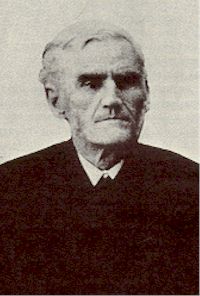Jewels are pretty to look at. Not only that, but they are extremely valuable too. To have in possession a single authentic jewel is to be considered of inestimable worth. Why? Many jewelers say it is because of its rarity, beauty, and the type of polishing they go through, which is alot.

Christians are like jewels too. Extremely valuable in God’s kingdom and they go through a lot of life’s polishing called trials. I like how Ellen White draws the illustration of Christians as jewels. It’s quite lengthy, but I promise, it’s a good read.
The polishing of Christians
Christians are Christ’s jewels. They are to shine brightly for Him, shedding forth the light of His loveliness. Their luster depends on the polishing they receive. They may choose to be polished or to remain unpolished. But everyone who is pronounced worthy of a place in the Lord’s temple must submit to the polishing process. Without the polishing that the Lord gives they can reflect no more light than a common pebble.
Christ says to man, “You are mine. I have bought you. You are now only a rough stone, but if you will place yourself in my hands, I will polish you, and the luster with which you shall shine will bring honor to My name. No man shall pluck you out of My hand. I will make you My peculiar treasure. On My coronation day, you will be a jewel in My crown of rejoicing.”
The divine Worker spends little time on worthless material. Only the precious jewels does He polish after the similitude of a palace, cutting away all the rough edges. This process is severe and trying; it hurts human pride. Christ cuts deep into the experience that man in his self-sufficiency has regarded as complete, and takes away self-uplifting from the character. He cuts away the surplus surface, and putting the stone to the polishing wheel, presses it close, that all roughness may be worn away. Then, holding the jewel up to the light, the Master sees in it a reflection of Himself, and He pronounces it worthy of a place in His casket. “In that day, saith the Lord of hosts, will I take thee,… and will make thee as a signet: for I have chosen thee, saith the Lord of hosts.” Blessed be the experience, however severe, that gives new value to the stone, and causes it to shine with living brightness.
God will not suffer one of His true-hearted workers to be left alone to struggle against great odds and be overcome. He preserves as a precious jewel every one whose life is hid with Christ in God. Our High Calling, 322.
“…All the jewels, precious jewels, His loved and His own”
A song that reminds me of jewels being gathered when Jesus comes back is found in SDAH 218. I especially like the second stanza.
He will gather, He will gather
The gems for His kingdom,
All the pure ones, all the bright ones,
His loved and His own
The hymn was written as a young man who was named William Orcutt Cushing. Working in a Sunday school with young children, this future minister who was born in Hingham, Massachusetts found inspiration from the words in Malachi 3:17, “And they shall be mine, saith the LORD of hosts, in that day when I make up my jewels; and I will spare them, as a man spareth his own son that serveth him.” He collaborated with the much celebrated musician, George Frederick Root, to compose the tune for this hymn. Today, the hymn tune is widely called “Jewels.”
Cushing had his fair share of “life’s polishing”. His wife who stood as strong pillar by his side in ministry fell ill. For 16 years, Cushing tenderly cared for her until she died in 1870. Soon after her death, Cushing gradually experienced paralysis which hindered him from doing pastoral ministry. However, this did not stop him from being active. Through the years of being a paralytic, his burning prayer was, “Lord, still give me something to do for Thee!”
The answer to this prayer came in the form of poetry. Cushing was able to pen hundreds of gospel poems, 300 of which were set to music by some of the most distinguished composers, including George Root, Robert Lowry, Ira Sankey, H.P. Main, and many others.
In fact, you might already be familiar with the following hymns:
- Hiding in Thee (SDAH 525)
- There’ll Be No Dark Valley (SDAH 208)
- Under His Wings (SDAH 529)
- Beautiful Valley of Eden (SDAH 121 – Philippine Edition)
Cushing was not known to be the richest man either. But stories of his benevolence are widely retold. One such story is about giving all that he had and owned so he can send a blind girl to school. When he died in October 19, 1902, people testified that his life was an inspiration to all who knew him, and his death was that of the righteous.
Like this article? Share it!



